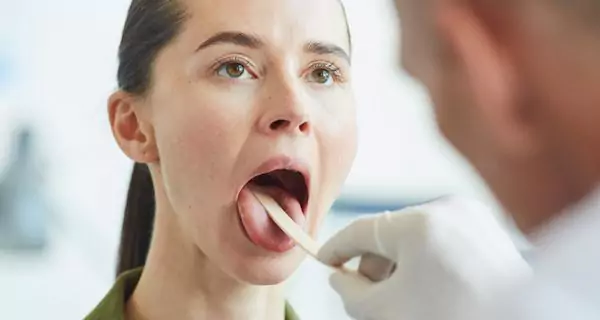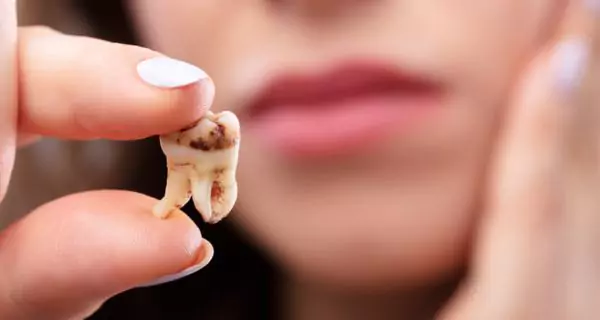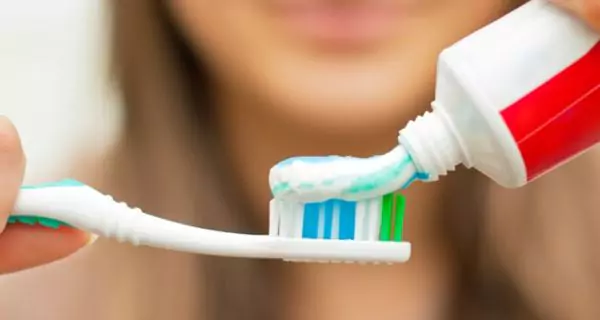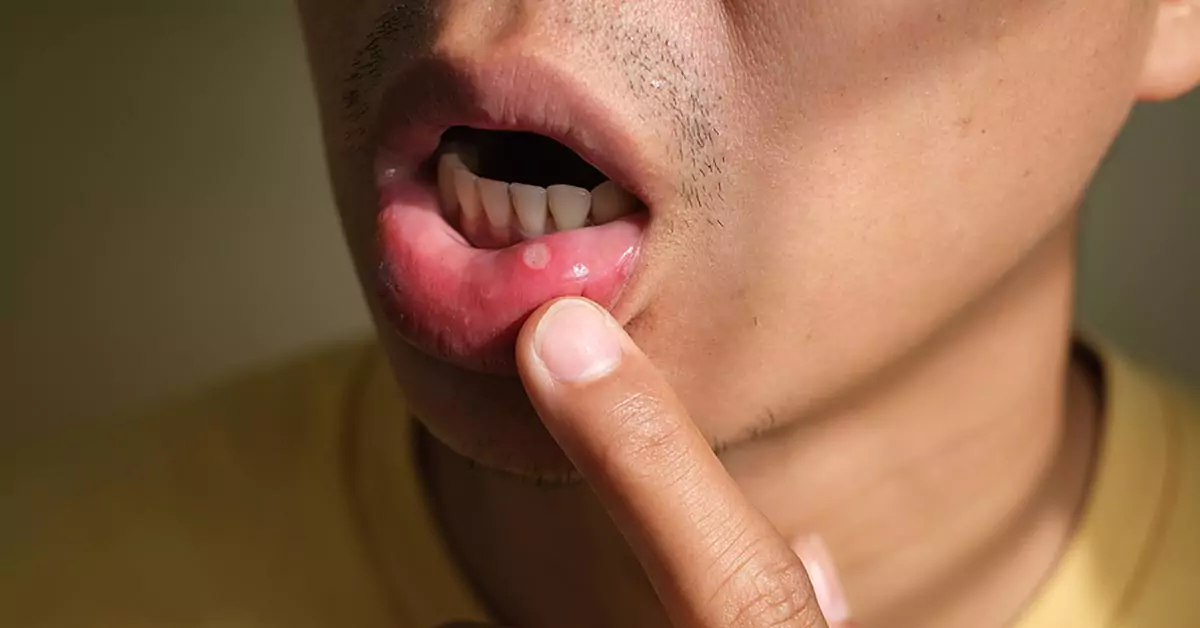Last Updated on: 19th September 2025, 12:31 pm
Yes, lupus can affect your teeth and gums. The immune system’s attack on healthy tissues may lead to dry mouth, gum disease, mouth sores, tooth decay, and even tooth loss. Medication side effects and fatigue can also make daily oral care harder. Regular dental visits, gentle hygiene, and staying hydrated help protect your oral health when living with lupus.
Lupus is a chronic autoimmune disease that affects various parts of the body, including the oral cavity. A common concern is whether lupus affects the teeth? The immune system’s attack on healthy tissues can lead to problems such as dry mouth, gum disease, and even tooth loss.
If you or someone close to you is living with lupus, being aware of how it affects your mouth is an essential step in preventing complications and staying as healthy as possible.
This article will explore how lupus can affect oral health, the common dental problems associated with the disease, and steps you can take to protect your teeth and gums.
What is the connection between lupus and oral health?

Lupus, particularly systemic lupus erythematosus (SLE), is a chronic autoimmune disease in which the body’s immune system mistakenly attacks its own healthy tissues. It can cause inflammation in many parts of the body, including your joints, skin, kidneys, lungs, and yes, your mouth.
While we often hear more about how lupus affects internal organs, its impact on oral health deserves attention too. Because the immune system isn’t functioning properly, people with lupus are more likely to develop gum disease, mouth sores, dry mouth, and other dental issues. The good news is that, with the right care, most of these problems can be managed.
How does lupus affect your teeth?
Lupus can have several direct and indirect effects on the health of teeth. And there is not just one single factor behind it. The combination of immune system dysfunction, medication side effects, and fatigue all contributes to common dental problems in people with lupus.
The immune system’s role
The immune system’s attack on the body’s tissues can lead to inflammation in the mucous membranes of the mouth, making the gums and inner mouth prone to infection and bleeding. This inflammation can result in gum disease and, if left untreated, may lead to tooth loss.
Medication side effects
Certain medications used to manage lupus, such as corticosteroids and immunosuppressants, have side effects that affect oral health. While effective, these drugs can increase the risk of dry mouth and oral infections while also weakening the body’s ability to heal.
Fatigue and oral hygiene
Lupus-related fatigue can make it harder to keep up with daily oral hygiene. When you’re exhausted, brushing and flossing may feel overwhelming, especially if you’re also dealing with gum sensitivity or mouth ulcers. Over time, this can lead to plaque buildup, cavities, and worsening gum disease.
What are the most common oral health issues in lupus?
More than 70% of people with lupus experience some form of oral symptom during their illness. These problems vary from person to person, but they tend to have a direct impact on daily comfort and overall well-being.
Dry mouth (xerostomia)

Dry mouth is one of the most common complaints. It often occurs because lupus or related conditions like secondary Sjögren’s Syndrome reduce saliva production. Medications also contribute to dryness. Some symptoms of dry mouth include a sticky, burning, and dry feeling in the mouth and throat.
It’s very important because saliva plays a crucial role in protecting teeth; without it, the risk of cavities, gum problems, bad breath, and difficulty eating or speaking increases significantly.
Gum disease (Gingivitis and periodontitis)
Inflammation from lupus weakens the body’s ability to fight off bacteria that attack the gums. As a result, people with lupus are more likely to develop red, swollen, and bleeding gums.
If left untreated, gum disease can progress to periodontitis, which may cause gum recession, loose teeth, and even tooth loss.
Mouth sores and ulcers
Small, painful ulcers are a frequent symptom and one of the earliest signs of lupus. They tend to form on the tongue, inner cheeks, or roof of the mouth. While they may start painlessly, they often become irritating, making it difficult to eat, drink, or speak comfortably.
Tooth decay and sensitivity

Weakened enamel due to dry mouth and certain medications lead to higher rates of cavities and tooth erosion. Many people with lupus also report increased sensitivity to hot and cold, which can be linked to both enamel thinning and gum recession.
Mouth infections
With a compromised immune system, infections like oral thrush (a yeast infection) become more common, especially in people taking immunosuppressants or steroids. In some cases, untreated ulcers or lesions increase the risk of serious complications, including infection spread and, rarely, oral cancer.
TMJ (Temporomandibular Joint Disorders)
Lupus can affect joints throughout the body, including the jaw. This can lead to TMJ issues, causing jaw pain, difficulty chewing, or problems opening and closing the mouth. TMJ symptoms are more common during the early stages of lupus.
Oral health isn’t just limited to teeth; it’s closely related to overall well-being. Bacteria from gum infections can enter the bloodstream and travel to other parts of the body.
Therefore, regular dental care, along with medical treatment, is essential. If you’re living with lupus, paying attention to your oral symptoms and responding early can make a big difference in maintaining comfort, confidence, and health.
What oral care tips can help people with lupus?
Taking care of your oral health with lupus may require a little extra care, but it’s worth it. Lupus can affect your mouth in many ways, so taking preventative measures and working closely with your dentist will make a big difference in your overall well-being and health.
Here are some helpful tips and treatments to take care of your oral health while living with lupus.
1. Prioritize gentle, consistent oral hygiene

Good daily habits go a long way in preventing problems before they start.
- Brush your teeth twice a day using a soft-bristled toothbrush and fluoride toothpaste.
- Be gentle, especially around the gums, as they may be more sensitive or inflamed.
- Floss carefully each day to remove plaque buildup and food particles.
- Consider using an alcohol-free or antimicrobial mouthwash to help control bacteria without causing dryness.
If you’re dealing with painful sores or gum inflammation, it may be difficult to brush or floss, but staying consistent with a gentle routine is one of the best defenses against tooth decay and gum disease.
2. Stay ahead of dry mouth
Dry mouth (xerostomia) is a common issue in people with lupus, often triggered by autoimmune inflammation or medication side effects. When saliva levels are low, the mouth becomes more vulnerable to bacteria and decay.
- Drink water regularly throughout the day to stay hydrated.
- Use saliva substitutes, moisturizing gels, or sprays if you need extra help.
- Avoid alcohol, caffeine, and tobacco, which can make dryness worse.
Keeping your mouth moist helps protect your enamel, freshen breath, and improve comfort when speaking or eating.
3. Make smart food choices
What you eat can affect how your mouth feels, especially during flares.
- If you have ulcers or gum sensitivity, avoid spicy, acidic, or crunchy foods that can irritate the tissues.
- Choose softer, soothing foods like yogurt, scrambled eggs, smoothies, or soups.
- Limit sugary snacks and drinks to reduce the risk of cavities, especially if you have dry mouth.
4. Don’t skip your dental visits

Seeing your dentist regularly—at least every six months—is key to managing oral health with lupus. If you’re already dealing with symptoms like dry mouth, gum disease, or mouth sores, your dentist might recommend more frequent check-ups (such as every three months).
- Let your dentist know you have lupus and share any medications you’re taking.
- Ask if they have experience working with patients who have autoimmune conditions.
- Your dentist will coordinate care with your doctor if needed, especially when symptoms overlap or treatments interact.
Routine check-ups can help spot problems early and prevent complications that might otherwise go unnoticed.
5. Explore preventive and supportive treatments
Depending on your symptoms, your dentist may recommend targeted treatments, including:
- Fluoride varnish or rinses to strengthen enamel and protect against decay.
- Topical corticosteroids to reduce inflammation from mouth ulcers or sores.
- Custom mouthguards if lupus affects your jaw joints (TMJ) or causes teeth grinding.
- More frequent cleanings or deep scaling to manage gum inflammation or periodontitis.
These treatments are especially important if lupus symptoms flare frequently or medications affect your oral health.
Living with lupus means thinking holistically, and that includes your mouth. Your dentist will provide guidance, resources, and support to help you adapt your oral care routine as needed. Be open with them about how you’re feeling, the challenges you’re facing, and don’t hesitate to ask questions.
By taking small but consistent steps, you can stay ahead of dental issues and protect your smile, even while living with lupus.
Recommended products for oral health in lupus

Several products can help manage the oral health issues commonly experienced by individuals with lupus, such as dry mouth, gum disease, and oral ulcers. These products can alleviate discomfort and promote healing.
- Oral moisturizers and saliva substitutes: Products like Biotene Oral Balance and ACT Dry Mouth Mouthwash help relieve dry mouth by moisturizing the mouth and preventing complications like tooth decay.
- Topical gels for mouth sores: Topical gels like Orajel and Anbesol help numb and soothe painful mouth ulcers and sores, reducing discomfort.
- Fluoride rinses and toothpastes: Fluoride products like Sensodyne Pronamel and Listerine Total Care help protect teeth from decay, especially when dry mouth is present.
- Soft-bristled toothbrushes: To prevent gum irritation, use soft-bristled toothbrushes such as Oral-B Sensitive Gum Care and Oral-B Pro Health Toothbrush for a gentle, effective cleaning.
Living with lupus means managing many aspects of your health, and your mouth is part of that picture. Oral symptoms are common, but with the right care, you can prevent many complications and stay comfortable day to day.
Remember: a healthy mouth isn’t just about teeth; it’s also about feeling better, eating well, and taking care of yourself as a whole.
Frequently Asked Questions
Can lupus make dental treatments more complicated?
Is it safe to undergo dental surgery if I have lupus?
Does lupus affect dental implants or dentures?
Are electric toothbrushes better for people with lupus?
Should I tell my dentist I have lupus even if I’m not having symptoms?
Voice and Search (Q&A)
How does lupus affect oral health?
Lupus can cause dry mouth, gum disease, mouth sores, and increase the risk of tooth loss. It affects your mouth through immune system inflammation and medication side effects.
What are the best oral care tips for people with lupus?
Brush gently with a soft toothbrush, use fluoride toothpaste, stay hydrated, use saliva substitutes, and visit your dentist regularly for checkups and cleanings.
Can lupus cause tooth loss?
Yes. Lupus can lead to gum disease and bone loss around teeth, which increases the risk of tooth loss if not managed with good oral care and dental visits.
Share
References
1. Cleveland Clinic Collaborators. (2023, 6 September). Lupus (Systemic Lupus Erythematosus). Cleveland Clinic. https://my.clevelandclinic.org/health/diseases/4875-lupus
2. Lupus Foundation of America. (2023, 4 December). Lupus and the Mouth. Lupus Foundation of America. https://www.lupus.org/resources/oral-health-issues-with-lupus
3. Lupus Foundation of America. (2020, 8 January). People with Lupus Exhibit Increased Need for Dental Management. Lupus Foundation of America. https://www.lupus.org/news/people-with-lupus-exhibit-increased-need-for-dental-management
4. Mayo Clinic Staff. (2022, 21 October). Lupus. Mayo Clinic. https://www.mayoclinic.org/diseases-conditions/lupus/symptoms-causes/syc-20365789
5. Pedersen, T. (2023, 8 November). Can Lupus Affect Your Teeth?. Healthline. https://www.healthline.com/health/lupus/lupus-and-teeth
-
Dr. Yeidy Carolina Mesa [Author]
DDS Yeidy Carolina Mesa Passionate Dentist | Advocate for Accessible Oral Health Education Graduating from Universidad CES in 2022, I am a dedicated general dentist with a lifelong passion for helping others and making a meaningful impact in the world. My journey into dentistry began at the age of 7, inspired by my own experience with braces and overcoming a fear of the dentist. This personal journey shaped my mission to help patients conquer their own dental anxieties and embrace a healthier,...
View all posts
-
Nayibe Cubillos M. [Medical Reviewer]
Pharmaceutical Chemestry |Pharmaceutical Process Management | Pharmaceutical Care | Pharmaceutical Services Audit | Pharmaceutical Services Process Consulting | Content Project Manager | SEO Knowledge | Content Writer | Leadership | Scrum Master
View all posts
A healthcare writer with a solid background in pharmaceutical chemistry and a thorough understanding of Colombian regulatory processes and comprehensive sector management, she has significant experience coordinating and leading multidisciplina...Recent Posts
















